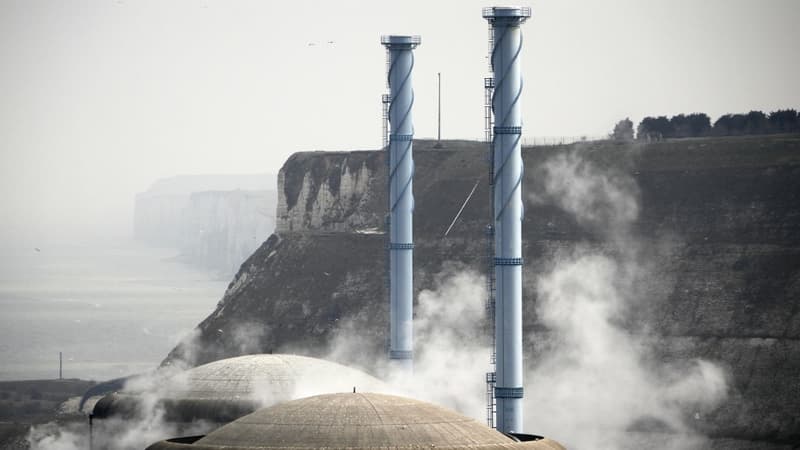The government wants to make rapid progress in reviving French nuclear power. This is one of the three points addressed by Emmanuel Macron during his trip to Saint-Nazaire last Thursday as part of the inauguration of the first offshore wind farm in France. As a result of this visit, on Monday morning Elisabeth Borne’s team was presented with a bill for the acceleration of renewable energies. And the government wants to commit to a nuclear power ramp-up bill that it plans to pass to the Cabinet next month.
The draft text is already circulating and was presented on Monday to the National Council for the Ecological Transition (CNTE). “We are in a consultation phase with the actors that aims to have a real dialogue, listen to the observations and see if there are good ideas or points of vigilance to possibly adapt the text”, explains the Ministry of Health Energy Transition.
Buildings on existing sites
Specifically, the main objective of the bill is to regulate the EPR2 (European Pressurized Reactor) program and the construction of six nuclear reactors of this type by 2035 with the first peaks before 2027. The figure could even reach 14 infrastructures. in accordance with the objectives indicated by the President of the Republic. To achieve this, the text wishes to reduce the construction time of these reactors by several years. It is in this logic that it adopts a similar angle to that of its renewable energy twin by simplifying the procedures through a single administrative authorization that would include all the necessary ones up to now.
These new nuclear reactors will be built near existing sites such as Penly (Seine-Maritime), which will host the first pair of EPR2 reactors and will be followed by Gravelines (North). “They will be in sites that already house reactors for two reasons, indicates the Ministry of Energy Transition, first for convenience, because they will be easy to connect since the current is already present and then by field, because EDF had already planned land reserves in the decade 1970″. A factor that does not exclude, however, the possibility of expropriation: “If we need an electrical transformer station, for example, and the location is 200 meters from the plant, it may be good to simplify the procedures to install it”.
ASN Security Framework Compliance
As in the case of renewable energies, the nuclear acceleration bill is awaited in turn, in particular by associations that fear a “farce of consultation”, in the words of the general director of the League for the protection of birds (LPO), on various construction projects. However, the minister’s office assures that the text will not affect “the depth of analysis of the security framework of the ASN (Nuclear Security Authority)”, whose independence is guaranteed by law.
Similarly, the bill would maintain “an ambition in terms of protecting biodiversity and the environment.” It is also the environmental charter that obliges it to respect the principle of participation of the registered public. Thus, the exact location of the new nuclear reactors will be the subject of public debate and that around the Penly couple should begin in the coming weeks, “if not in the coming days.” The Government has set the second half of 2023 as the deadline for the entry into force of the different provisions of the bill.
Source: BFM TV


